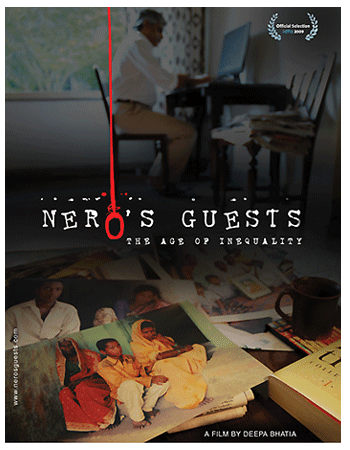- Prelude
- Editorial
- A Conversation with Sheela Gowda
- The DIY Artist with a Mission
- Discovering Novel Horizons
- A Conversation with Raqs Media Collective
- Manjunath Kamath
- Jitish Kallat- the Alchemist
- The Artist and the Dangers of the Everyday: Medium, Perception and Meaning in Shilpa Gupta's work
- An Attitude for the Indian New Media
- Weave a Dream-Theme Over Air or a Medium like Ether
- Installation in Perspective: Two Outdoor Projects
- Towards The Future: New Media Practice at Kala Bhavana
- Workshop @ Facebook
- Desire Machine: Creating Their Own Moments…
- Typography: The Art of Playing with Words
- Legend of a Maverick
- Dunhill-Namiki
- The Period of Transition: William and Mary Style
- The Beauty of Stone
- Nero's Guests: Voicing Protest Against Peasant's Suicides
- Patrons and Artists
- The Dragon Masters
- What Happened and What's Forthcoming
- Art Chennai
- Art Events Kolkata
- Winds of Change
- Art Bengaluru
- Mumbai Art Sighting
- Musings from Chennai
- In the News
- Previews
- Ascending Energy, Merging Forms: Works by Satish Gujral
- Re-visiting the Root
- The Presence of Past a New Media Workshop
- Taue Project
ART news & views
Nero's Guests: Voicing Protest Against Peasant's Suicides
Volume: 3 Issue No: 15 Month: 4 Year: 2011
Cinema
by Sarmistha Maiti
Peasant suicide has become a common plight in India due to the rapid change in the socio-economic structure of the country, the huge force of globalization with the increasing hegemony of industrialization and capitalist economy where the society is starkly being divided into 'the haves' and 'the have not'. Looking into the problem in a much simpler way, one can deduce that the primary reason behind the suicide of these farmers is 'poverty' and the 'inability to repay debts'. In the official record, it has been found that about 200,000 farmers have committed suicide in India over the last decade. But no mainstream media bothered to pay any attention to this fact. Neither did the Government, both Central and State didn't pay any attention towards this cause. And the number of deaths increased day-by-day.
Nero´s Guests, the documentary film by Deepa Bhatia is a story about India's agrarian crisis and the growing inequality in the socio-economic conditions of the peasant society seen through the work of P Sainath- the Rural Affairs Editor of Hindu newspaper. P Sainath worked on this particular subject for many years and kept tracking about the changing scenario of the agrarian society and its diminishing pride gradually leading to immense financial crisis and subsequent self-killing being unable to cope up with such miserable conditions of life and livelihood. Sainath is the 2007 winner of the Ramon Magsaysay Award for Journalism,  Literature and Creative Communications Arts and the source of inspiration for Deepa to make this film.
Literature and Creative Communications Arts and the source of inspiration for Deepa to make this film.
Sainath's primary contribution towards this social issue was to create the national agenda and compel the government in denial to take notice and act through sustained coverage of the farm crisis. Finally he and his colleagues took initiative to drag in the state and central administration to pay attention in this matter and take steps to eradicate it and it took, as Sainath said, a 10 year journey for the government to even have a glance of the issue how miserably the peasants have been living in with degraded hope for any further sustenance. Sainath wrote profusely on this issue and delivered lectures at different level so that at least enlightenment can be brought up in the mainstream mass which too should realize where the whole society is leading to. He tries to make us see the real India with gaping wealth disparities and lack of social justice, and provokes us to think who are the 'Nero's Guests' in today's world.
The reference of Nero comes from the Roman emperor Nero Claudius Caesar Drusus Germanicus who was known as one of the most notorious, barbarous and cruel kings of Rome. To treat his guests he had set the common mass on fire to ignite and light up the city! So Nero's Guests is a mock for the Indian economy that is constantly keeping the real feeders of the country in complete deprivation.
Deepa Bhatia, the renowned Bollywood editor made this documentary in 2009 which was her first independent film in collaboration with Arte France and in association with Oktober. Deepa along with Co-producers Joonas Berghell and Pramod Mathur and Executive Producer Iikka Vehkalahti was highly inspired by Sainath's work and captured the film in the form of Sainath delivering lectures on the issue along with following him to different rural belts of Maharashtra and meeting the peasant families where one or more members have committed suicides. It was Sainath who was leading the film and building up the intimate interactive zones where as the filmmaker remained quite observational at the treatment level of the film. The film comes as a straight slap on the face of the audience who are bound to realize where the nation is leading to and how indifferent we as individuals are, who bother for none…
A 55 minute tight locked film takes us into a journey of self-realization and arouses the essence within us to deeply look into the issue and raise our voices against it.